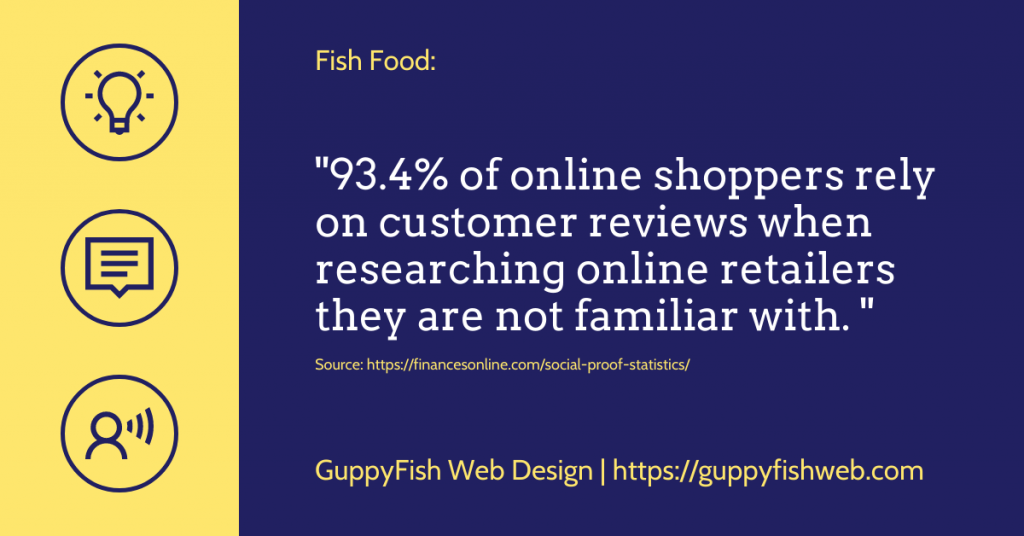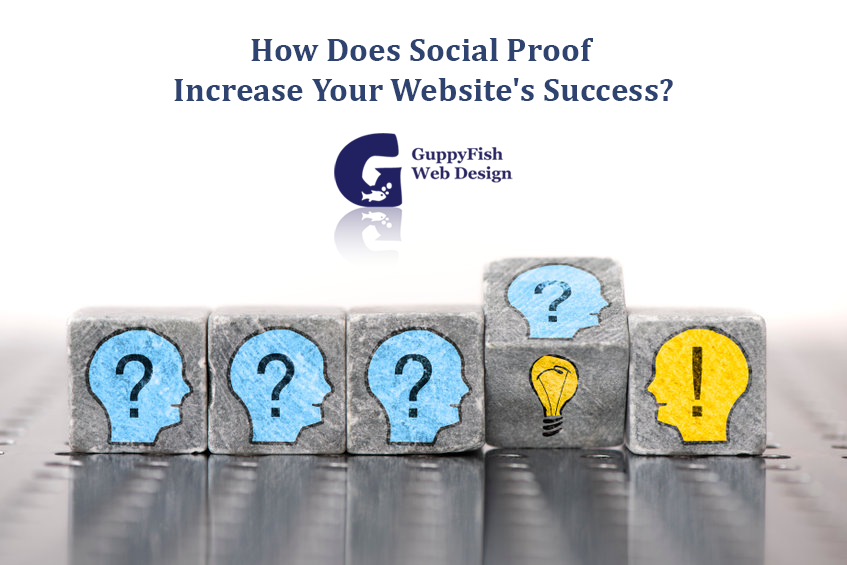We are such social creatures. Well, maybe not during a pandemic, although I don’t think that’s by choice. As much as we admonish our kids about caving to peer pressure, we still feel safe going “along with the crowd”. How many times have you or a friend taken to social media to request recommendations for a reliable plumber, for example? You never see anyone ask for a mediocre person who may or may not get the job done. If we know a reliable friend trusts an expert, we tend to go that direction. Harnessing the power of this kind of social proof can increase your conversions and grow your business.
What is Social Proof?
According to whatis, “Social proof is the influence that the actions and attitudes of the people around us (either in real life or online) have on our own behavior. The “proof” element is the idea that if other people are doing it (or saying it), it must be correct.” In layman’s terms, you kind of harness another’s positive experience to encourage a user to perform an action.
People feel more comfortable when they know someone else has had a positive or successful experience. It puts them at ease and reassures them that they will likely have a similar interaction with a brand or product. Through the use of reviews, testimonials, case studies, and success stories, brands use social proof to help potential customers feel safe interacting with them.
Effectiveness
Is social proof effective? Raise your hand if you’ve ever read the reviews about a product or service before deciding on it?

Yeah, me too. Most of us rarely make a purchase without reading the reviews. This is the perfect example of social proof. In fact, according to stats, 93.4% of online shoppers rely on customer reviews when researching online retailers they are not familiar with. I know math is hard, but that’s a really high percentage. Like almost all. You absolutely can’t afford to ignore this!

Social Proof Examples
Now that you know the definition of social proof, let’s look at some examples. We’ll start with the most obvious first.
Testimonials
As noted in the statistic above, testimonials contribute to conversions more than almost any other source. You want to make sure you have them, but knowing where to put them is even more important. As we’ve discussed before, most people don’t read dedicated testimonial pages. The best usage is to sprinkle them around your website in relevant places, like service pages, product descriptions, and near calls to action.
What should the testimonials say? The most effective reviews tend to be specific and state more details about the positive experience, explaining the WHY and HOW. Freelance copywriter Sheila Gonzales says this:
Reviews
Similar to testimonials, online reviews on Google, Facebook, Yelp, etc. also help users see you in a positive light. While they do not usually appear directly on your website, you can copy/paste them or link to where people can read them. Many business owners show hesitancy in accepting reviews for fear they will receive negative ones. Here’s the thing. Negative reviews happen. It’s what you do about them that counts. Quoting the same source listed above:
- 79.9% of customers admit that their trust in a brand increases when the brand responds to negative reviews or comments. (eMarketer, 2019)
- Meanwhile, the trust of 95% of consumers decreases when brands remove negative comments instead of addressing them. (eMarketer, 2019)
If someone leaves a negative review, respond to it. Address the problem (politely) and tell what you have done or will do to make it better.
Logos as Social Proof
You’ve probably seen sites, like for software companies, with a heading something like “Seen On” or “Also Used By”. Under that, you’ll see a group of logos for companies that use that product or service. This is not difficult at all to do, but it does reassure potential buyers that there others who have gone before them.
Case Studies
A case study shows exactly how your product or service helped someone. Often shown in blog post form, they describe where the customer started, what you did to help them, and what success they had as a result. While very powerful in showing success in detail, it’s not as easy to “squeeze” them in next to a call to action or service page. One thing you could do, however, is put a blurb on the page with a headline or synopsis and a link to read more.
And More…
While we’ve covered the most common forms of social proof, you see it more places than you realize. Check out these other examples:
- Social Media
- Influencer Marketing
- Celebrity Endorsements
- Awards and Certifications
What effect does social proof have on you? Which specific techniques help push you toward making a decision. We’d love to hear in the comments. In the meantime, keep swimming along!




0 Comments